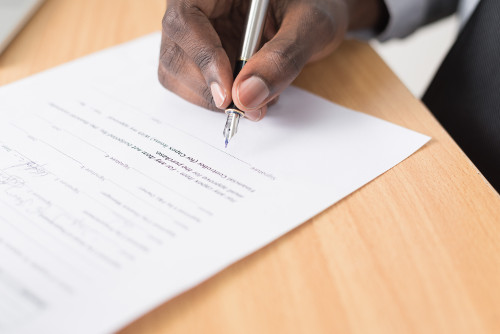GET IN TOUCH
Please contact us for more information. Our email is monitored seven days a week and we will get back to you shortly.

To write a valid will in BC, the writer must have testamentary capacity at the time of writing the will. As described in the Wills, Estates and Succession Act, someone with testamentary capacity is defined as a “person who is 16 years of age or older and who is mentally capable of [making a will].” More specifically, according to the judgement in Banks v. Goodfellow (1870), for a will-writer to have testamentary capacity they must be:
In short, testamentary capacity is your ability, or lack thereof, to understand the significance of your will. While these criteria might be clear, it’s often unclear how one can prove/disprove the cognitive capacity of another. In this blog, we’ll go over the most common ways professionals assess capacity and why.

The test for testamentary capacity is not a medical test, it is a legal test. This means that a judge or lawyer is able to determine whether a person has the testamentary capacity or not. A doctor doesn’t have authority in this respect, however, it is common to consult with medical experts during the process. In some cases, close family and friends can be helpful in determining a person’s mental capacity. People close to the testator are typically familiar with their mental state and understand if their mental capacity has deteriorated.
There are many different definitions of mental capacity. People often have the legal capacity to do certain things, but not others. For example, one could be mentally capable of writing a valid will, however, incapable of appointing a power of attorney. The capacity to write a will is one which specifically fits the criteria outlined above.
Before a drafting lawyer prepares a will, they’re responsible with ensuring the testator has the appropriate capacity to do so. A drafting lawyer is not to prepare a will for someone who doesn’t have the testamentary capacity to write a will. This is because a person who doesn’t have the testamentary capacity to make a will is someone who doesn’t understand the implications of the will – they’re unfit to make decisions regarding their estate assets. Lawyers will sometimes do assessment tests themselves, asking questions to determine where a person’s mental capacity stands. It’s rare for a lawyer to consult a medical professional to evaluate their client before writing a will for them, but it can be necessary in some instances.
Depending on the context and bequests the person is wishing to make in their will, a lawyer can sometimes detect incapacity. When a testator is making a rather controversial will – i.e. disinheriting one or all of their children without strong or logical reason – it may be grounds for suspicion of incapacity. In some cases, such as will-writing for an elderly person, the lawyer will use a questionnaire, asking questions during the drafting process. Lawyers might ask questions along the lines of:
Generally speaking, drafting lawyers will ask questions that can help to prove the above criteria for testamentary capacity.
Since it’s ultimately up to the will drafting lawyer to determine capacity, wouldn’t this mean that someone who writes their own will can write it when they’re incapable? Technically, the answer is yes, however, the will would likely be challenged by interested parties, usually children, who are unhappy or otherwise concerned by it. In this case, there would have been no one around at the time of the will being written to determine the person’s mental capacity. This could warrant a suspicious circumstance and be grounds for challenging the validity of the will. For more information, read our blog on challenging for testamentary capacity.
If you would like a lawyer to help draft your will and ensure you have the testamentary capacity to write a valid will, contact an experienced estate lawyer today.
Have a question about this topic or a different legal topic? Contact us for a free consultation. Reach us via phone at 250-888-0002, or via email at info@leaguelaw.com.